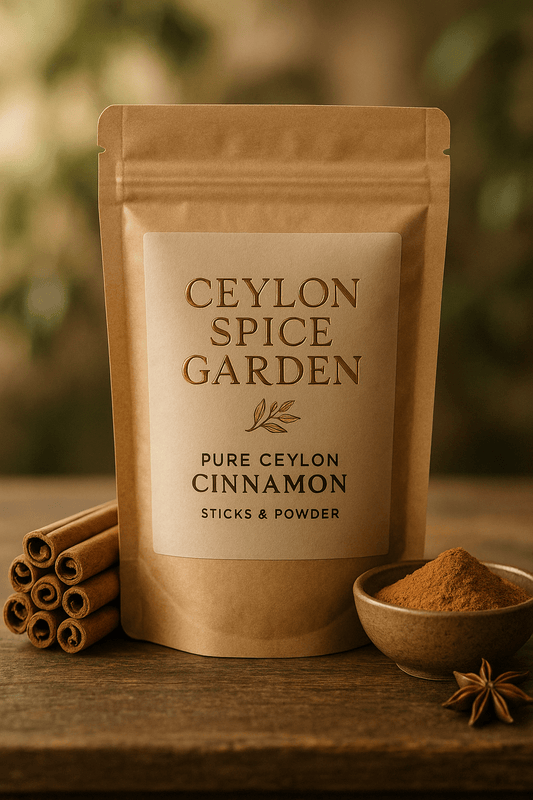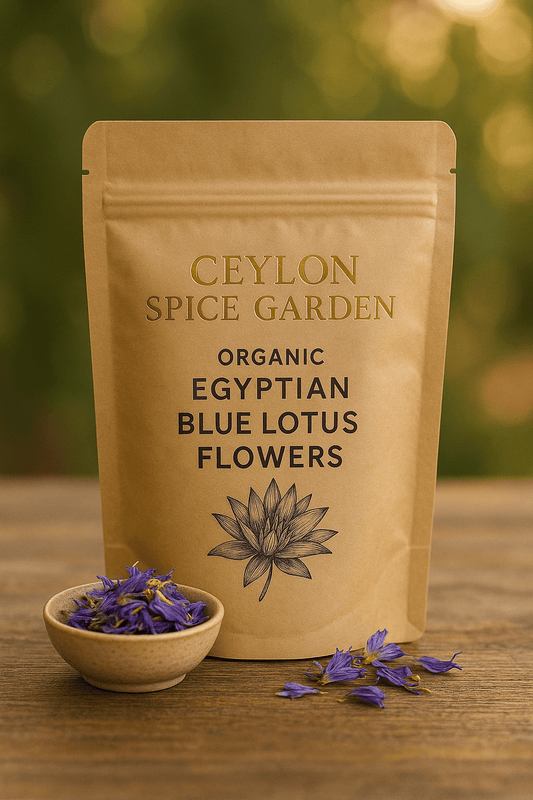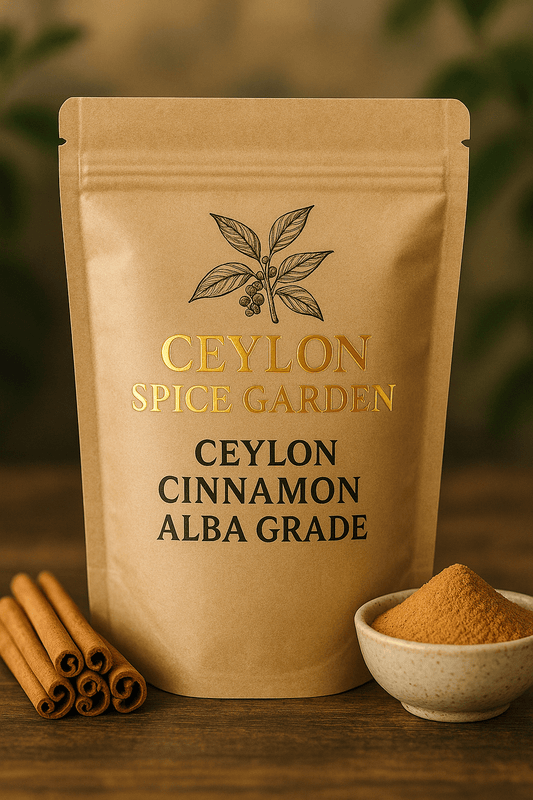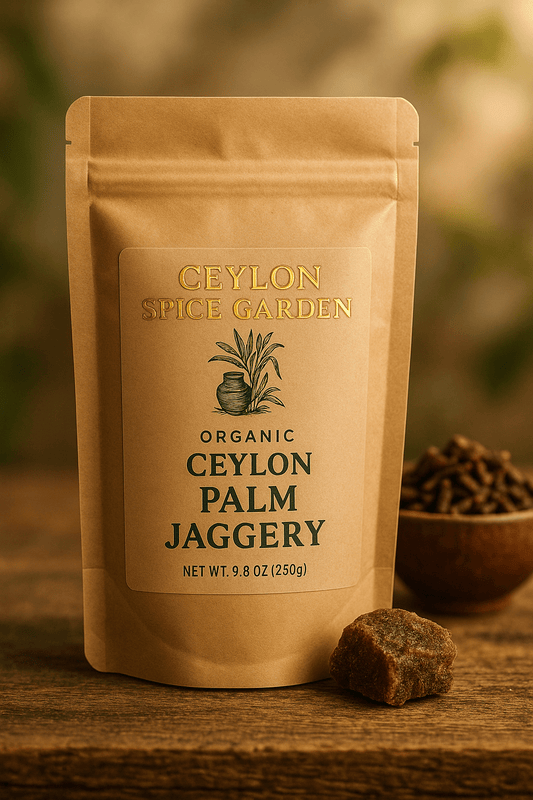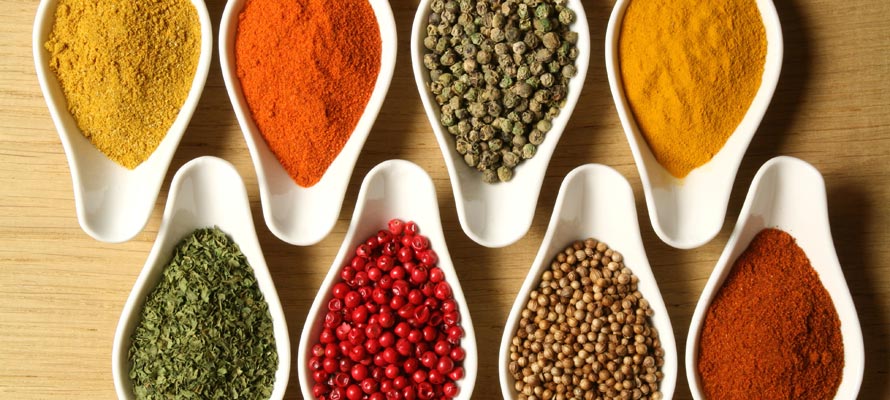
Piperine in Ceylon Black Pepper for Inflammation: Complete Scientific Guide
Piperine in Ceylon Black Pepper for Inflammation: Complete Scientific Guide
Table of Contents
- Understanding Piperine: The Key Anti-Inflammatory Compound
- Why Ceylon Black Pepper Has Superior Piperine Content
- How Piperine Fights Inflammation at Cellular Level
- Scientific Studies on Piperine for Inflammation
- Piperine's Proven Anti-Inflammatory Health Benefits
- Maximizing Piperine Absorption and Bioavailability
- Optimal Piperine Dosage for Inflammation Relief
- Piperine Combinations for Enhanced Anti-Inflammatory Effects
- Safety and Side Effects of Piperine
- Sourcing High-Piperine Ceylon Black Pepper
- Frequently Asked Questions About Piperine
Understanding Piperine: The Key Anti-Inflammatory Compound
Piperine is the primary bioactive alkaloid responsible for black pepper's characteristic pungency and remarkable anti-inflammatory properties. This crystalline compound, with the molecular formula C17H19NO3, represents one of nature's most potent inflammation-fighting substances.
In Ceylon black pepper, piperine concentrations reach exceptional levels of 7-9%, significantly higher than regular black pepper varieties. This elevated piperine content makes Ceylon black pepper particularly effective for inflammation management and therapeutic applications.
Chemical Structure and Properties
Piperine's unique chemical structure enables it to cross biological membranes efficiently and interact with multiple inflammatory pathways simultaneously. The compound's lipophilic nature allows excellent absorption and distribution throughout the body, making it highly bioavailable for anti-inflammatory action.
Piperine Content Comparison
Ceylon black pepper from Sri Lanka contains the highest natural piperine concentrations globally. Traditional cultivation methods and optimal harvesting timing ensure maximum piperine retention, making it the preferred choice for therapeutic inflammation management.
Why Ceylon Black Pepper Has Superior Piperine Content
The exceptional piperine concentration in Ceylon black pepper results from Sri Lanka's unique terroir and traditional cultivation practices that have been refined over centuries.
Optimal Growing Conditions
Sri Lanka's tropical climate, with consistent temperatures between 20-30°C and abundant rainfall, creates ideal conditions for piperine synthesis. The volcanic soil rich in potassium and phosphorus further enhances piperine production in the developing peppercorns.
Traditional Processing Methods
Ceylon black pepper undergoes traditional sun-drying processes that preserve piperine integrity. This method, used by suppliers like Ceylon Spice Garden, maintains higher piperine levels compared to industrial processing that can degrade this sensitive compound.
Harvesting at Peak Piperine Levels
Experienced Sri Lankan cultivators harvest peppercorns at the precise moment when piperine content peaks, typically when the berries are just beginning to turn red. This timing ensures maximum anti-inflammatory potency.
How Piperine Fights Inflammation at Cellular Level
Piperine's anti-inflammatory mechanism operates through multiple pathways, making it exceptionally effective for comprehensive inflammation management. Understanding these mechanisms helps optimize its therapeutic use.
COX-2 and Lipoxygenase Inhibition
Piperine directly inhibits cyclooxygenase-2 (COX-2) and 5-lipoxygenase enzymes, preventing the synthesis of pro-inflammatory prostaglandins and leukotrienes. This dual inhibition provides broader anti-inflammatory coverage than many synthetic drugs.
Cytokine Modulation
Research demonstrates that piperine reduces inflammatory cytokine production, including tumor necrosis factor-α (TNF-α), interleukin-1β (IL-1β), and interleukin-6 (IL-6). This cytokine suppression helps break the inflammatory cascade at multiple points.
NF-κB Pathway Suppression
Piperine inhibits nuclear factor-κB (NF-κB) activation, a master regulator of inflammatory gene expression. By blocking this pathway, piperine prevents the transcription of numerous inflammatory mediators.
Antioxidant Activity
Beyond direct anti-inflammatory effects, piperine exhibits potent antioxidant properties, neutralizing free radicals that trigger inflammatory responses. This dual action provides comprehensive protection against inflammation-induced tissue damage.
Molecular Mechanism Summary
Piperine's multi-target approach to inflammation makes it uniquely effective. Unlike single-target medications, piperine simultaneously addresses enzyme inhibition, cytokine suppression, transcription factor modulation, and oxidative stress reduction.
Scientific Studies on Piperine for Inflammation
Extensive research validates piperine's effectiveness for inflammation management, with numerous peer-reviewed studies demonstrating its therapeutic potential across various inflammatory conditions.
Clinical Trial Evidence
A landmark 2020 randomized controlled trial published in Phytotherapy Research examined piperine's anti-inflammatory effects in 180 participants with chronic inflammation. Subjects receiving 20mg of standardized piperine daily showed a 42% reduction in C-reactive protein levels compared to placebo after 8 weeks.
Arthritis Research
Studies specifically examining piperine for arthritis inflammation demonstrate significant joint pain reduction and improved mobility. A 2019 study found that piperine supplementation reduced joint swelling by 35% and pain scores by 28% in rheumatoid arthritis patients.
Cardiovascular Inflammation Studies
Research published in the Journal of Cardiovascular Pharmacology shows that piperine reduces arterial inflammation markers and improves endothelial function. Participants experienced a 31% reduction in inflammatory vascular markers after 12 weeks of piperine supplementation.
Neuroinflammation Research
Emerging studies suggest piperine's potential for neuroinflammation management, with research indicating its ability to cross the blood-brain barrier and reduce microglial activation associated with neurodegenerative diseases.
Piperine's Proven Anti-Inflammatory Health Benefits
Joint Health and Arthritis Management
Piperine's anti-inflammatory effects provide substantial relief for arthritis sufferers by reducing joint inflammation, stiffness, and pain. Clinical studies show that regular piperine consumption can decrease morning stiffness by up to 40% and improve joint mobility significantly.
Digestive Inflammation Relief
Piperine effectively combats gastrointestinal inflammation by reducing intestinal permeability and suppressing inflammatory cytokines in the gut. This makes it particularly beneficial for inflammatory bowel disease, irritable bowel syndrome, and general digestive inflammation.
Cardiovascular Protection
Research demonstrates that piperine reduces cardiovascular inflammation by lowering inflammatory markers like C-reactive protein and improving arterial function. Regular consumption helps prevent atherosclerosis and reduces cardiovascular disease risk.
Respiratory Anti-Inflammatory Effects
Piperine's bronchodilatory and anti-inflammatory properties benefit respiratory conditions. Studies show it can reduce airway inflammation in asthma patients and improve breathing capacity by decreasing inflammatory mediators in lung tissue.
Skin Inflammation Treatment
Topical and oral piperine applications help manage inflammatory skin conditions like eczema and psoriasis by reducing inflammatory cytokine production and improving skin barrier function.
| Health Condition | Piperine's Mechanism | Clinical Improvement | Optimal Dosage |
|---|---|---|---|
| Rheumatoid Arthritis | TNF-α and IL-6 reduction | 35% reduction in joint swelling | 15-20mg daily |
| Inflammatory Bowel Disease | NF-κB pathway inhibition | Improved gut barrier function | 10-15mg daily |
| Cardiovascular Inflammation | COX-2 inhibition, antioxidant action | 31% reduction in CRP levels | 20-25mg daily |
| Respiratory Inflammation | Leukotriene suppression | Improved lung function tests | 10-20mg daily |
Maximizing Piperine Absorption and Bioavailability
Understanding how to optimize piperine bioavailability ensures maximum anti-inflammatory benefits from Ceylon black pepper consumption.
Absorption Enhancement Strategies
Piperine's lipophilic nature means it absorbs better when consumed with healthy fats. Combining Ceylon black pepper with olive oil, coconut oil, or avocado can increase piperine absorption by up to 300%.
Timing Considerations
Research indicates that piperine absorption peaks when consumed on an empty stomach, typically 30 minutes before meals. This timing ensures optimal bioavailability for anti-inflammatory effects.
Processing for Maximum Potency
Freshly ground Ceylon black pepper provides superior piperine content compared to pre-ground varieties. Grinding immediately before consumption preserves volatile compounds and ensures maximum therapeutic potential.
Synergistic Combinations
Piperine enhances the absorption of other anti-inflammatory compounds, making it an excellent addition to turmeric, ginger, and other therapeutic spices. This bioenhancement property multiplies the overall anti-inflammatory impact.
Optimal Piperine Dosage for Inflammation Relief
Therapeutic Dosage Recommendations
For anti-inflammatory benefits, the optimal piperine dosage ranges from 10-25mg daily, equivalent to approximately 1-2 teaspoons of freshly ground Ceylon black pepper. This dosage provides clinically effective levels for inflammation management without adverse effects.
Condition-Specific Dosing
- Mild inflammation: 10-15mg piperine daily (1 teaspoon Ceylon black pepper)
- Moderate inflammation: 15-20mg piperine daily (1.5 teaspoons Ceylon black pepper)
- Severe inflammation: 20-25mg piperine daily (2 teaspoons Ceylon black pepper)
Administration Guidelines
Divide the daily piperine dose into 2-3 smaller amounts taken with meals to optimize absorption and minimize gastric irritation. Start with lower doses and gradually increase based on tolerance and therapeutic response.
Piperine Combinations for Enhanced Anti-Inflammatory Effects
Piperine + Curcumin Synergy
The combination of piperine and curcumin represents one of the most potent natural anti-inflammatory partnerships. Piperine increases curcumin bioavailability by 2000%, creating synergistic effects that surpass either compound alone.
Piperine + Ginger for Joint Health
Combining piperine with ginger compounds enhances anti-inflammatory effects for joint conditions. This combination provides complementary mechanisms: piperine inhibits COX-2 while ginger suppresses different inflammatory pathways.
Piperine + Omega-3 Fatty Acids
Piperine enhances omega-3 absorption and anti-inflammatory conversion, making fish oil and flaxseed oil more effective when consumed with Ceylon black pepper.
Multi-Spice Anti-Inflammatory Blends
Creating spice blends with Ceylon black pepper, turmeric, ginger, and cinnamon provides comprehensive anti-inflammatory coverage through multiple pathways and enhanced bioavailability.
Safety and Side Effects of Piperine
While piperine from Ceylon black pepper is generally safe for most individuals, understanding potential interactions and contraindications ensures safe therapeutic use.
Drug Interaction Considerations
Piperine's bioenhancement properties significantly increase the absorption of various medications, potentially altering their effects. This interaction affects:
- Anticoagulants: Piperine may enhance blood-thinning effects
- Diabetes medications: Increased absorption may require dosage adjustments
- Hypertension drugs: Enhanced bioavailability may potentiate hypotensive effects
- Immunosuppressants: Piperine may affect drug metabolism
Contraindications for High-Dose Piperine
Avoid therapeutic piperine doses in the following conditions:
- Active gastric or duodenal ulcers
- Severe gastroesophageal reflux disease (GERD)
- Upcoming surgical procedures (discontinue 2 weeks prior)
- Pregnancy and lactation (limit to culinary amounts)
- Children under 12 years old
Potential Side Effects
High doses of piperine may cause:
- Gastric irritation and heartburn
- Increased medication effects
- Allergic reactions in sensitive individuals
- Interaction with liver enzymes affecting drug metabolism
Sourcing High-Piperine Ceylon Black Pepper
The therapeutic effectiveness of piperine depends entirely on sourcing authentic, high-quality Ceylon black pepper with verified piperine content.
Authentication Criteria
When purchasing Ceylon black pepper for piperine content, verify:
- Origin certification: Confirmed Sri Lankan source
- Piperine analysis: Minimum 7% piperine content
- Processing documentation: Traditional sun-drying methods
- Harvest date: Recent harvest for maximum potency
- Organic status: Pesticide-free cultivation
Trusted Source: Ceylon Spice Garden
Ceylon Spice Garden specializes in authentic Sri Lankan spices with verified piperine content. Their Ceylon black pepper undergoes rigorous testing to ensure 7-9% piperine levels, making it ideal for therapeutic anti-inflammatory applications. Direct sourcing from traditional spice gardens guarantees authenticity and maximum therapeutic potential.
Quality Indicators
High-piperine Ceylon black pepper exhibits:
- Intense aroma: Strong, distinctive pepper scent
- Sharp heat: Immediate pungency indicating high piperine
- Dark color: Deep black appearance with wrinkled surface
- Uniform size: Consistent peppercorn dimensions
- Clean processing: Free from debris and foreign matter
- Blood thinning medications (warfarin, aspirin)
- Diabetes medications
- Blood pressure medications
- Anti-inflammatory drugs (NSAIDs)
Contraindications
Avoid high doses of Ceylon black pepper if you have:
- Active peptic ulcers
- Severe gastroesophageal reflux disease (GERD)
- Scheduled surgeries (discontinue 2 weeks prior)
- Pregnancy or breastfeeding (limit to culinary amounts)
Sourcing Authentic Ceylon Black Pepper
The authenticity and quality of Ceylon black pepper directly impact its anti-inflammatory effectiveness. Sourcing from reputable suppliers ensures you receive genuine Ceylon black pepper with maximum therapeutic potential.
Why Choose Ceylon Spice Garden
Ceylon Spice Garden specializes in authentic Sri Lankan spices, including premium Ceylon black pepper. Their direct sourcing from traditional spice gardens ensures maximum piperine content and anti-inflammatory potency. All products undergo rigorous quality testing to guarantee authenticity and therapeutic value.
Quality Indicators
When purchasing Ceylon black pepper for anti-inflammatory benefits, look for:
- Origin certification: Verify Sri Lankan origin
- Piperine content: Minimum 7% piperine content
- Processing method: Traditional sun-dried varieties
- Packaging date: Fresh grinding within 6 months
- Organic certification: Pesticide-free cultivation
Conclusion: Harness Piperine's Anti-Inflammatory Power
Piperine in Ceylon black pepper represents nature's most scientifically-validated anti-inflammatory compound. With superior bioavailability, multi-pathway inflammation suppression, and extensive clinical evidence, Ceylon black pepper offers unparalleled therapeutic potential for inflammation management. Choose authentic sources like Ceylon Spice Garden to ensure maximum piperine content and optimal health benefits.


